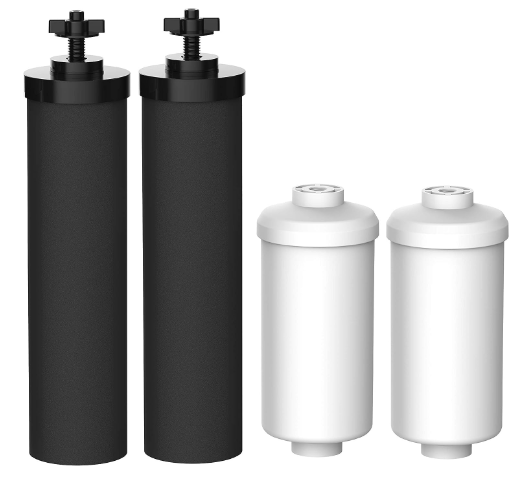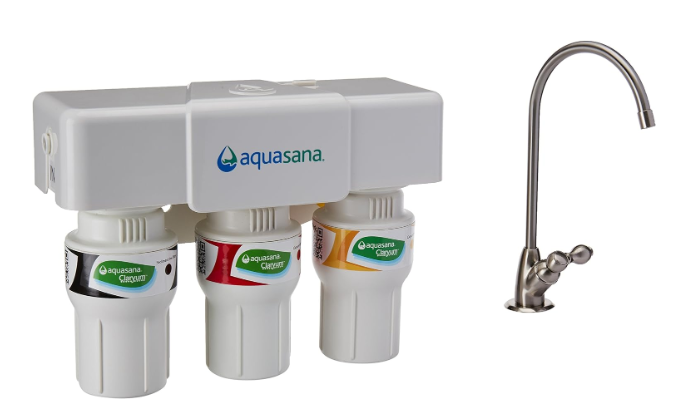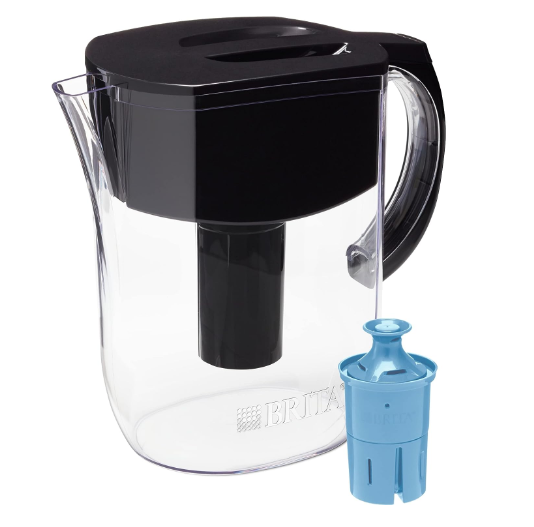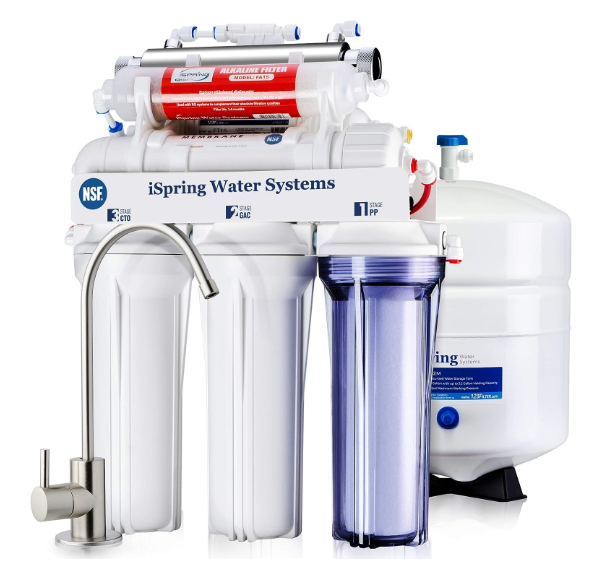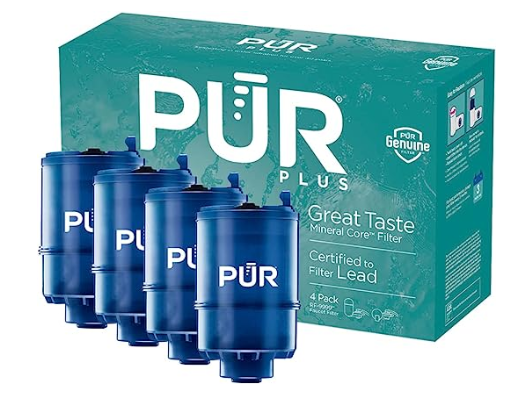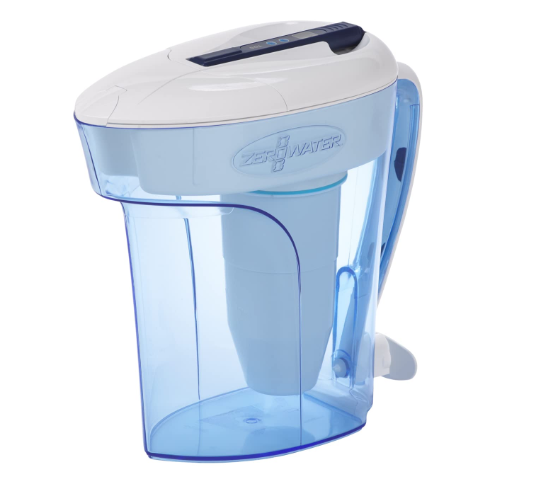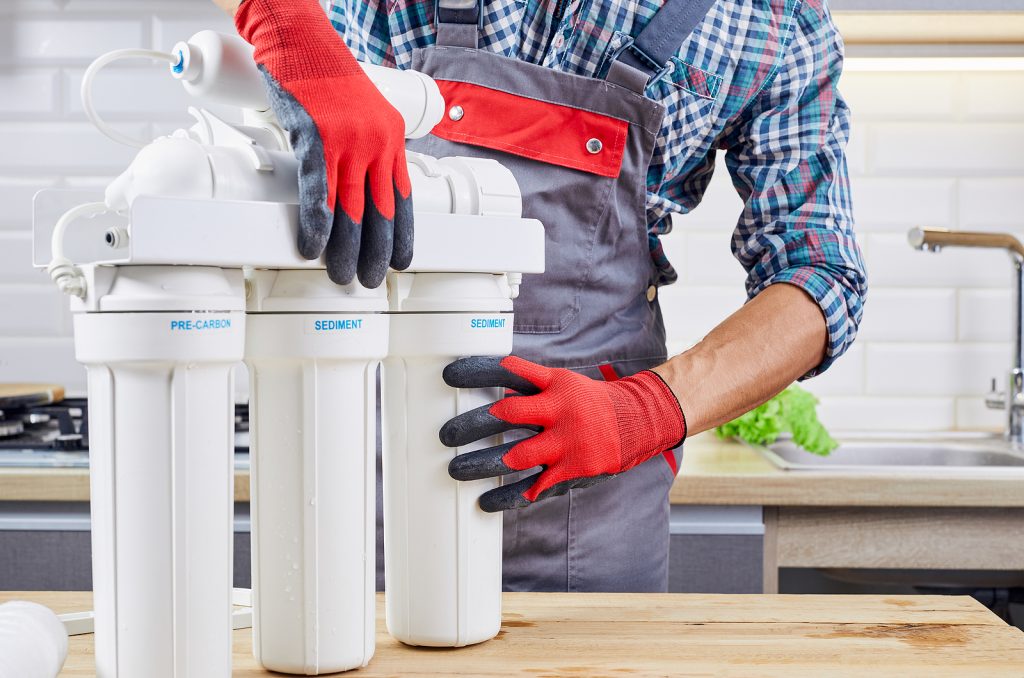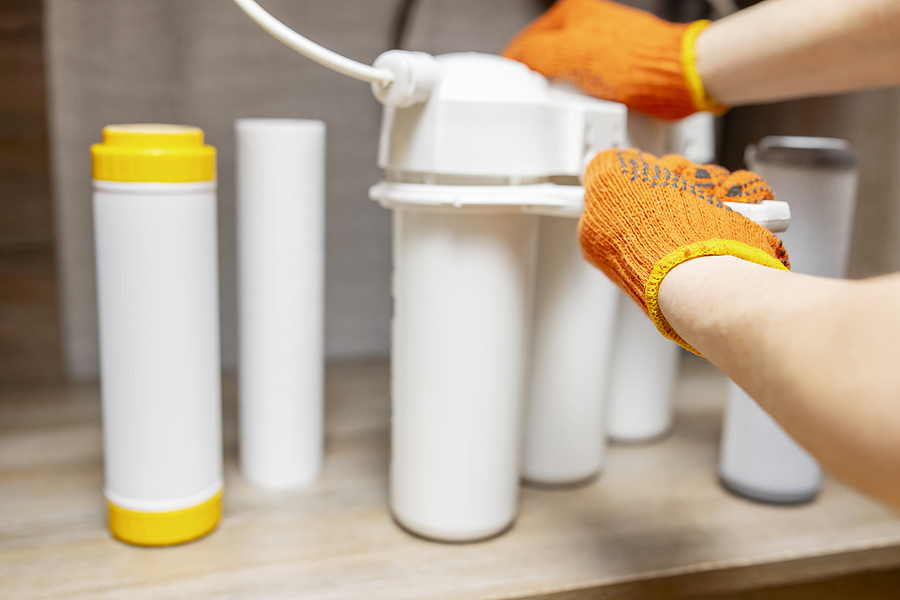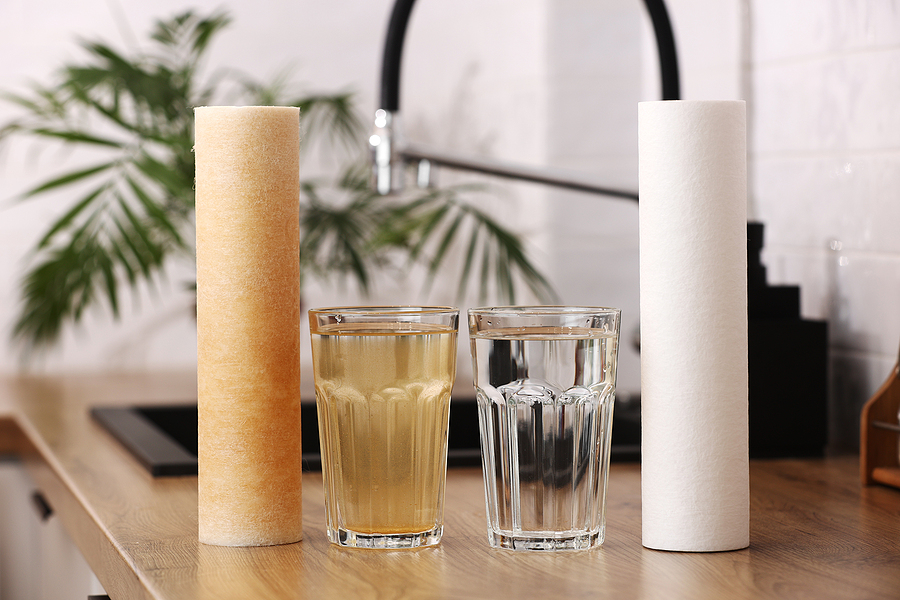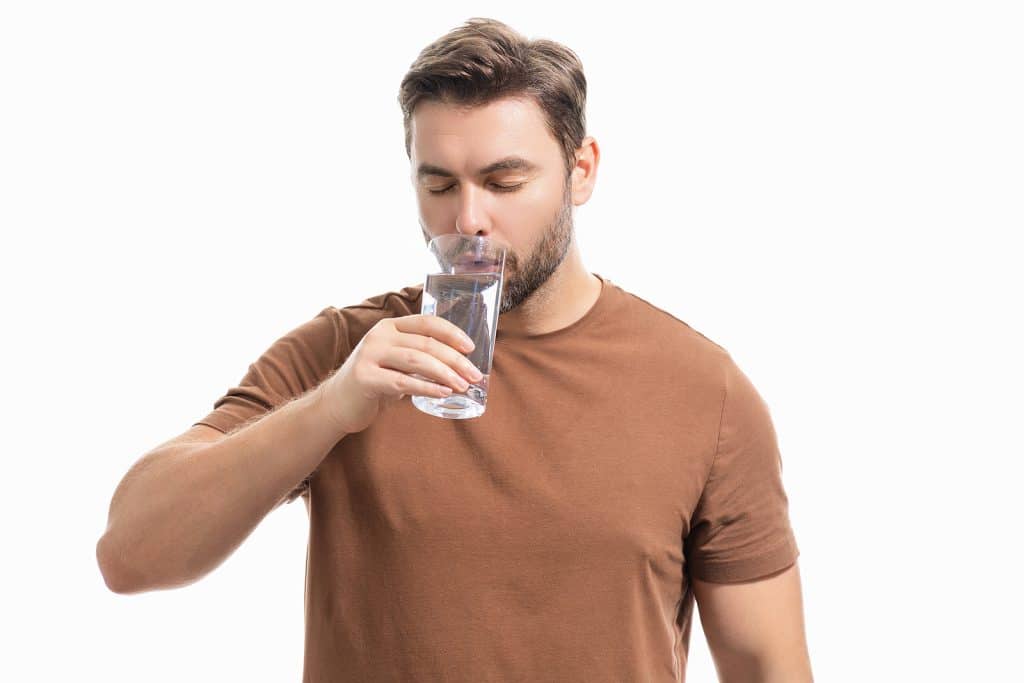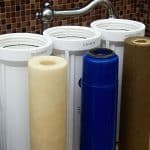Water is essential for human survival, and it is crucial to ensure that the water we drink is clean and safe. Unfortunately, not all water sources are reliable, and contaminants can easily find their way into our drinking water. This is where water filters come in. A water filter is a device that removes impurities from water, making it safe for consumption.
Various types of water filters are available in the market, each with unique features and benefits. Some filters use activated carbon to remove chlorine, sediment, and other organic compounds, while others use reverse osmosis to remove dissolved solids and contaminants. Some filters are designed for home use, while others are portable and can be used while camping or traveling. Regardless of the type, the main goal of a water filter is to provide clean and safe drinking water.
Understanding Water Contamination
Water contamination is a serious problem worldwide, affecting developed and developing countries. Contaminants in water can be naturally occurring or man-made and can come from a variety of sources, including industrial, agricultural, and domestic activities. Understanding the different types of water contaminants is essential in choosing the right water filter for drinking water.
- Types of Water Contaminants – Water contaminants can be classified into four categories: physical, chemical, biological, and radiological.
- Physical Contaminants – Physical contaminants can be seen with the naked eye. They include sediment, soil, sand, and rust particles. These contaminants can make water appear cloudy or discolored.
- Chemical Contaminants – Chemical contaminants are substances found in water that can harm human health. They include pesticides, herbicides, fertilizers, and industrial chemicals. These contaminants can cause various health problems, from skin irritation to cancer.
- Biological Contaminants – Biological contaminants are living organisms found in water. They include bacteria, viruses, and parasites. These contaminants can cause various health problems, from gastrointestinal illnesses to severe infections.
- Radiological Contaminants – Radiological contaminants are substances that emit radiation. They include radon, uranium, and cesium. These contaminants can cause cancer and other health problems.
- Sources of Water Contamination – Water contamination can come from various industrial, agricultural, and domestic sources. Industrial activities can release chemicals and heavy metals into water sources, while agricultural activities can release pesticides and fertilizers. Household activities like flushing medications down the toilet can also contaminate water.
Why Use a Water Filter
Water is an essential component of human life, and it is crucial to ensure that the water we consume is clean and safe. Unfortunately, many drinking water sources are contaminated with impurities that can have adverse health effects. This is where water filters come in handy.
Water filters remove impurities and contaminants from water, making it safe for consumption. There are many reasons why one should use a water filter, including:
- Protection from Harmful Contaminants – Water can contain harmful contaminants such as lead, chlorine, and bacteria that can cause severe health problems. Water filters remove these contaminants, making the water safe for consumption.
- Improved Taste and Odor – Water filters remove impurities that can affect the taste and odor of water. This makes the water taste better and more refreshing.
- Cost-Effective – Using a water filter is a cost-effective way of obtaining clean drinking water. It eliminates the need to purchase bottled water, which can be expensive over time.
- Environmental Benefits – Using a water filter reduces the need for bottled water, which reduces plastic waste and helps protect the environment.
Best Water Filter for Drinking and Cooking Water
1. Berkey Water Filter
Berkey Water Filter is a high-quality water filtration system that provides clean and safe drinking water for households, outdoor enthusiasts, and emergency preparedness. The system uses gravity to filter out impurities from water, including bacteria, viruses, parasites, chemicals, and heavy metals.
The Berkey Water Filter has two stainless steel chambers holding the filter elements. The upper chamber is filled with untreated water, which flows through the filters into the lower section. The filters are made of a proprietary blend of materials, including activated carbon and micro-porous ceramic, which remove contaminants from the water.
The system is easy to use and does not require electricity or plumbing. It can purify up to 6,000 gallons of water before needing to be replaced. The Berkey Water Filter is also portable and ideal for camping, hiking, and other outdoor activities.
One of the main advantages of the Berkey Water Filter is its ability to remove a wide range of contaminants from water, including chlorine, fluoride, lead, and arsenic. The system also effectively eliminates bacteria and viruses, making it a popular choice for emergency preparedness.
The Berkey Water Filter is a reliable and effective water filtration system that provides clean and safe drinking water. Its durability, portability, and versatility make it popular for households, outdoor enthusiasts, and emergency preparedness.
Pros:
- High-quality filtration: The Berkey water filter uses a combination of activated carbon filters and microfiltration technology to remove a wide range of contaminants, including bacteria, viruses, chemicals, and heavy metals.
- Long-lasting filters: The filters can last for a long time, up to several years, depending on usage and water quality.
- Portable and easy to use: Berkey water filters are designed to be portable and can be used in any location, making them ideal for camping, travel, or emergencies.
- No electricity or plumbing required: Berkey water filters do not require electricity or plumbing, which makes them easy to use in any situation.
Cons:
- Expensive upfront cost: The initial cost of purchasing a Berkey water filter can be high, especially for larger models.
- Slow filtration rate: The filtration rate of Berkey water filters is slower than other types of water filters, which can be a drawback if you need to filter large quantities of water quickly.
- Requires regular maintenance: The filters need to be cleaned and maintained regularly to ensure optimal performance.
- Limited capacity: The capacity of Berkey water filters is limited, so they may not be suitable for larger families or groups.
2. Aquasana Countertop Water Filter
The Aquasana Countertop Water Filter is a high-quality water filtration system that provides clean, safe, and great-tasting water for your home. This countertop filter is easy to install and can be used in any kitchen or office setting.
The Aquasana Countertop Water Filter uses a dual filtration system that includes a carbon filter and a mechanical filtration system. The carbon filter removes impurities and contaminants from the water, while the automatic filtration system removes sediment, rust, and other particles that may be present in the water.
One of the main benefits of the Aquasana Countertop Water Filter is that it is designed to remove over 70 different contaminants from your water, including chlorine, lead, mercury, pesticides, and pharmaceuticals. This means you can enjoy clean and safe drinking water without worrying about harmful chemicals or pollutants.
The Aquasana Countertop Water Filter is also designed to be long-lasting and cost-effective. The filter can last for up to six months before it needs to be replaced, and replacement filters are affordable and easy to find.
The Aquasana Countertop Water Filter is an excellent choice for anyone looking to improve the quality of their drinking water. It is easy to install, highly effective at removing contaminants, and cost-effective in the long run.
Pros:
- Effective filtration: The Aquasana Countertop Water Filter uses a multi-stage filtration process to remove a wide range of contaminants, including chlorine, lead, mercury, pesticides, and pharmaceuticals.
- Easy to install: The filter can be easily attached to most standard faucets without the need for any special tools or plumbing.
- Cost-effective: Compared to other water filtration systems, the Aquasana Countertop Water Filter is relatively affordable, and the replacement filters are reasonably priced.
- Eco-friendly: The filter cartridges are made from recyclable materials, and the system reduces the need for bottled water, which helps reduce plastic waste.
Cons:
- Limited capacity: The filter can only process a limited amount of water at a time, which may not be sufficient for larger households.
- Slow filtration rate: The filtration process can be slow, which may be an issue for those who need large quantities of filtered water quickly.
- Bulky design: The filter takes up a significant amount of counter space, which may not be ideal for those with limited counter space.
- Filter replacement frequency: The filter cartridges need to be replaced every six months, which may be more frequent than other water filtration systems.
3. Brita Everyday Pitcher
The Brita Everyday Pitcher is a popular water filtration system that provides clean and great-tasting water. This pitcher has a large capacity of 10 cups, making it perfect for families or those who drink a lot of water. The pitcher is made of BPA-free plastic, durable, and easy to clean. The lid of the pitcher is removable, making it easy to refill and clean.
The Brita Everyday Pitcher uses a Brita filter to remove impurities from tap water. The filter is made of activated carbon and ion-exchange resin, which work together to reduce chlorine taste and odor, as well as other contaminants like copper, mercury, and cadmium. The filter must be replaced every 40 gallons or approximately every two months depending on usage.
One of the benefits of the Brita Everyday Pitcher is that it is easy to use. Simply fill the pitcher with tap water, and the filter will do the rest. The pitcher has a handy indicator that shows when it’s time to replace the filter. This ensures that you always have clean and great-tasting water.
Another advantage of the Brita Everyday Pitcher is that it is cost-effective. Instead of buying bottled water, which can be expensive and harmful to the environment, you can use a pitcher to filter your tap water. This not only saves you money but also reduces waste.
The Brita Everyday Pitcher is an excellent investment for anyone who wants to enjoy clean and great-tasting water without the cost and waste of bottled water. Its large capacity, easy-to-use design, and cost-effectiveness make it a popular choice for households and individuals.
Pros:
- Convenient: The pitcher is easy to use and can be kept in the fridge for cold, filtered water on demand.
- Affordable: The pitcher is relatively inexpensive compared to other water filtration systems.
- Reduces impurities: The Brita filter is designed to reduce impurities such as chlorine, copper, and mercury from tap water, resulting in better-tasting and potentially healthier water.
- Environmentally friendly: The pitcher can help reduce the amount of single-use plastic water bottles used and discarded.
Cons:
- Limited capacity: The pitcher can only hold a certain amount of water at a time, so it may not be the best option for larger families or gatherings.
- Frequent filter changes: The filter needs to be changed every 40 gallons or so, which can add up in cost and effort over time.
- Slow filtration: The pitcher can take some time to filter water, so it may not be the best option if you need water quickly.
- Plastic construction: The pitcher is made of plastic, which may be a concern for some people who are looking to reduce their plastic use.
4. iSpring Reverse Osmosis Water Filter
The iSpring Reverse Osmosis Water Filter is a high-quality water filtration system that uses advanced technology to provide clean and safe drinking water. The system is designed to remove up to 99% of contaminants, including lead, chlorine, arsenic, fluoride, and more.
The iSpring Reverse Osmosis Water Filter is easy to install and comes with all the necessary components, including a pre-filter, post-filter, and membrane. The system also includes a storage tank holding up to 3.2 gallons of purified water.
One of the critical features of the iSpring Reverse Osmosis Water Filter is its 5-stage filtration process. This process includes a sediment filter, a granular activated carbon filter, a carbon block filter, a reverse osmosis membrane, and a post-filter. Each stage of the filtration process is designed to remove specific contaminants, ensuring the water is safe and clean to drink.
The iSpring Reverse Osmosis Water Filter also features a leak-free design, which helps to prevent water damage and ensures that the system operates smoothly. The system also includes a high-capacity booster pump that helps increase the water pressure, making filling glasses and water bottles easier.
The iSpring Reverse Osmosis Water Filter is an excellent choice for a high-quality water filtration system. With its advanced technology, easy installation, and 5-stage filtration process, this system provides clean and safe drinking water for your home or office.
Pros:
- Removes up to 99% of contaminants: The iSpring Reverse Osmosis Water Filter is highly effective at removing a wide range of contaminants, including lead, chlorine, arsenic, fluoride, and more.
- Easy to install: The system comes with all the necessary parts and clear instructions, making it easy to install and set up.
- Long-lasting filters: The filters have a long lifespan, typically lasting up to 6-12 months before needing to be replaced.
- Space-saving design: The compact design of the iSpring Reverse Osmosis Water Filter makes it easy to install in small spaces.
- Affordable: Compared to other reverse osmosis systems, the iSpring is relatively affordable, making it a good choice for those on a budget.
Cons:
- Slow flow rate: The iSpring Reverse Osmosis Water Filter has a slower flow rate than other filtration systems, which can be frustrating if you need a lot of water quickly.
- Waste water: Reverse osmosis systems typically produce a lot of waste water, and the iSpring is no exception. It can waste up to 3 gallons of water for every gallon of filtered water produced.
- Requires regular maintenance: While the filters last a long time, they do require regular maintenance to keep the system running smoothly.
- No remineralization: The iSpring Reverse Osmosis Water Filter does not include a remineralization stage, which means that the filtered water may be slightly acidic and lack beneficial minerals.
- Noise: The system can be noisy when it’s in operation, which may be a concern for some users.
5. PUR Faucet Mount Water Filter
The PUR Faucet Mount Water Filter is a simple and convenient solution for clean and safe drinking water at home. This water filter is designed to attach directly to your kitchen faucet, providing filtered water on demand. It uses a three-stage filtration system to remove up to 99% of lead, chlorine, and other contaminants from your tap water. The filter also reduces the taste and odor of chlorine, making your water taste fresher and cleaner.
The PUR Faucet Mount Water Filter is easy to install and requires no tools or plumbing skills. Attach it to your faucet and turn on the water. The filter has a built-in electronic filter life indicator that tells you when to replace it. The filter lasts up to three months or 100 gallons of water, whichever comes first.
The affordability is one of the best things about the PUR Faucet Mount Water Filter. It’s much cheaper than buying bottled water and saves money on expensive water filtration systems. It’s also environmentally friendly, reducing plastic waste generated by bottled water.
Overall, the PUR Faucet Mount Water Filter is an excellent choice for anyone who wants clean and safe drinking water at home. It’s easy to use, affordable, and effective at removing contaminants from your tap water. The PUR Faucet Mount Water Filter is worth considering if you want a simple and convenient water filtration solution.
Pros:
- Easy to install: The PUR faucet mount water filter is very easy to install. You do not need any special tools or plumbing knowledge to install it.
- Cost-effective: The cost of the PUR faucet mount water filter is relatively low compared to other types of water filtration systems. It is also cheaper than buying bottled water.
- Improves water taste: The PUR faucet mount water filter improves the taste of tap water by removing chlorine and other contaminants.
- Removes contaminants: The PUR faucet mount water filter can remove up to 99% of lead, mercury, and other contaminants from your tap water.
- Saves space: The PUR faucet mount water filter is small and does not take up much space on your countertop.
Cons:
- Limited filtration: The PUR faucet mount water filter is not as effective as other types of water filtration systems in removing certain contaminants such as fluoride and bacteria.
- Slow filtration: The PUR faucet mount water filter can take some time to filter water, which can be inconvenient if you need a lot of water quickly.
- Filter replacement: The filter needs to be replaced every 2-3 months, which can be a hassle and an additional expense.
- Limited lifespan: The PUR faucet mount water filter has a limited lifespan of about 100 gallons of water before it needs to be replaced.
- Compatibility issues: The PUR faucet mount water filter may not be compatible with all types of faucets, so you need to check before purchasing.
6. ZeroWater Pitcher
The ZeroWater Pitcher is a revolutionary water filtration system that promises to remove virtually all dissolved solids from tap water. This pitcher uses a patented 5-stage filtration process that combines activated carbon, ion exchange resin, and other advanced technologies to deliver pure, great-tasting water.
The ZeroWater Pitcher is designed to remove chlorine and other common contaminants, heavy metals, pesticides, and other harmful substances in tap water. This makes it an ideal choice for people who are concerned about the quality of their drinking water.
One of the critical features of the ZeroWater Pitcher is its digital TDS meter, which measures the total dissolved solids in the water before and after filtration. This allows users to see the difference the filtration process makes and ensures they get the purest water possible.
The pitcher is also easy to use and maintain, with a convenient flip-top lid and a removable, dishwasher-safe reservoir. The filter itself is long-lasting and can filter up to 40 gallons of water before needing to be replaced.
The ZeroWater Pitcher is a high-quality water filtration system that promises pure, great-tasting water. Whether you want to improve the taste of tap water or want to ensure that you are drinking the most sterile water possible, the ZeroWater Pitcher is a great choice.
Pros:
- Removes more contaminants: ZeroWater Pitcher is known for its ability to remove more contaminants compared to other water pitchers. It uses a five-stage filtration process that removes impurities such as lead, chlorine, and fluoride.
- Better taste: The filtration process used by ZeroWater Pitcher improves the taste of water by removing unpleasant odors and flavors.
- Affordable: ZeroWater Pitcher is an affordable option for those looking for a high-quality water filtration system.
- Easy to use: The pitcher is easy to use and requires no installation or plumbing.
Cons:
- Slow filtration: The five-stage filtration process used by ZeroWater Pitcher takes longer than other water pitchers, which can be a drawback for those who need water quickly.
- Frequent filter changes: The filters need to be changed frequently, which can be a hassle and add to the cost of ownership.
- Bulky design: The pitcher has a bulky design that may not fit in all refrigerators.
- Expensive replacement filters: The replacement filters for ZeroWater Pitcher are more expensive compared to other water pitchers.
Choosing the Right Water Filter
When choosing the right water filter for your home, there are a few essential factors to consider. Here are some key things to keep in mind:
- Filter Size – Your water filter will depend on a few factors, including your household size and the amount of water you use daily. Generally speaking, larger filters will be able to handle more water and will need to be replaced less frequently. However, they may also be more expensive upfront.
- Filter Life – The lifespan of your water filter will depend on a few different factors, including the type of filter you choose and the amount of contaminants in your water. Some filters may need to be replaced every few months, while others can last several years. Keeping track of your filter’s lifespan and replacing it when necessary is essential to ensure you get clean, safe drinking water.
- Contaminant Removal – Different water filters are designed to remove contaminants from your water. Some filters may be better suited for removing sediment and chlorine, while others may be more effective at removing lead, bacteria, and other harmful contaminants. Make sure you choose a filter that is designed to remove the specific contaminants that are present in your water supply.Choosing the right water filter is essential to ensure you and your family access safe drinking water. By considering factors like filter size, filter life, and contaminant removal, you can find a filter that meets your needs and provides peace of mind.
Installation and Maintenance
Installing a water filter for drinking water is a simple process that most homeowners can complete. The process typically involves attaching the filter to a water source, such as a faucet or refrigerator, and following the manufacturer’s instructions for flushing and priming the filter.
Before installation, it is essential to ensure that the filter is compatible with the water source and that all necessary components are included in the package. It is also recommended to turn off the water supply and relieve any pressure in the system before installing the filter.
Maintenance of the water filter is essential to ensure that it continues to function correctly and provide clean drinking water. The frequency of maintenance will depend on the filter type and the use level, but replacing the filter cartridge every 3-6 months is typically recommended.
Following the manufacturer’s instructions for cleaning and replacing the filter cartridge is crucial to maintaining the filter. This may involve flushing the filter with water, soaking it in a cleaning solution, or replacing the entire cartridge.
Regular water filter maintenance will ensure clean drinking water, prolong the filter’s lifespan, and prevent any potential damage to the water source.
Benefits of Drinking Filtered Water
Drinking filtered water has numerous benefits for the human body. Here are some of the top benefits of drinking filtered water:
- Removes Harmful Contaminants – Filtered water removes harmful contaminants such as chlorine, lead, and other heavy metals that can be present in tap water. These contaminants can cause serious health problems, especially if consumed over an extended period.
- Improves Taste and Odor – Filtered water significantly enhances the taste and odor of water. It removes impurities, making the water taste and smells fresh and clean.
- Improves Taste and Odor – Filtered water significantly enhances the taste and odor of water. It removes impurities, making the water taste and smells fresh and clean.
- Better for the Environment – Drinking filtered water is better for the environment than buying bottled water. Bottled water contributes significantly to plastic waste, harming the environment and wildlife.
- Promotes Overall Health – Filtered water supports overall health by providing essential minerals that benefit the body. It also helps keep the body hydrated, necessary for maintaining good health.
Potential Drawbacks
While water filters can be handy for providing safe and clean drinking water, there are some potential drawbacks to consider before investing in one.
- Initial Cost – One of the main drawbacks of water filters is their initial cost. Depending on the type of filter and its features, the price can range from a few dollars to several hundred dollars. While the cost may be worth it in the long run, it can be a significant upfront investment for some people.
- Maintenance – Another potential drawback is the maintenance required to keep the filter working properly. Filters must be replaced regularly; failure can result in contaminated water. This can be an added expense and inconvenience for some people.
- Limited Effectiveness – It’s important to note that not all water filters are created equal. Some filters may not effectively remove specific contaminants, such as heavy metals or pesticides. Researching and choosing a filter appropriate for the specific pollutants in the water source is crucial.
- Environmental Impact – While water filters can help reduce the amount of plastic water bottles used, they can also contribute to environmental waste. Filters need to be replaced and disposed of properly, which can add to the overall environmental impact of using a filter.
Overall, while water filters can be a valuable tool for providing safe and clean drinking water, it’s essential to consider the potential drawbacks before investing in one.
How Water Filters Can Help Keep Your Water Safe
Water filters are an essential tool to help keep your drinking water safe and free from harmful contaminants. They are designed to remove impurities and improve the taste and quality of your water. Water filters work by removing impurities from your water. These impurities include bacteria, viruses, chemicals, and other harmful substances in tap water. Many types of water filters are available on the market, each with unique features and benefits.
One of the most popular types of water filters is the activated carbon filter. This type of filter uses activated carbon to remove impurities from your water. Activated carbon is a highly porous material with a large surface area, allowing it to absorb various contaminants. This type of filter is particularly effective at removing chlorine, volatile organic compounds (VOCs), and other chemicals that can affect the taste and odor of your water.
Another type of water filter is the reverse osmosis filter. This type of filter uses a semi-permeable membrane to remove impurities from your water. The membrane allows water molecules to pass through, blocking larger particles like bacteria and viruses. This type of filter is particularly effective at removing dissolved solids, such as minerals and salts, which can affect the taste and quality of your water.
In addition to removing impurities, water filters can also help improve the taste and quality of your water. Many people find that filtered water tastes better than tap water, as it is free from chemicals and other contaminants that can affect the taste and odor of your water. Additionally, filtered water can be healthier for you, as it is free from the harmful substances found in tap water.
Using a water filter can also be more cost-effective than buying bottled water. Bottled water can be expensive, and it can also be harmful to the environment. Using a water filter can save money and reduce your environmental impact by reducing the amount of plastic waste you generate.
Water filters are an essential tool to help keep your drinking water safe and free from harmful contaminants. They are available in many different types and styles, so choosing the one that best suits your needs is vital. Whether you want to improve the taste and quality of your water or remove harmful substances from your tap water, a water filter can help you achieve your.
Who Should Use Water Filters for Drinking Water
Water filters are an excellent way to ensure your water is clean and safe for consumption. While tap water is generally safe in most developed countries, it can still contain contaminants that can harm your health. Here are some groups of people who should consider using water filters for drinking water:
- People with compromised immune systems: Individuals with weakened immune systems, such as those with HIV/AIDS or undergoing chemotherapy, are more susceptible to waterborne illnesses. Using a water filter can help remove harmful bacteria and viruses that may be present in tap water.
- Pregnant women should be especially cautious about the water they drink. Contaminants such as lead and mercury can harm the developing fetus. A water filter can help remove these harmful substances, ensuring the water is safe for the mother and the baby.
- Children: Children are more vulnerable to the effects of waterborne contaminants than adults. Using a water filter can help remove harmful substances, ensuring the water is safe for children to drink.
- People with gastrointestinal issues: Individuals with gastrointestinal problems, such as irritable bowel syndrome, may be more sensitive to contaminants in tap water. Using a water filter can help remove these contaminants, reducing the risk of gastrointestinal issues.
- Anyone concerned about tap water quality: Even if you don’t fall into any of the above categories, you may still want to consider using a water filter if you’re concerned about tap water quality. Water filters can help remove contaminants such as chlorine, which can affect the taste and odor of the water.
Effectiveness and Water Safety
Water filters are an effective way to remove impurities from water and make it safe for consumption. They use a physical or chemical process to trap or remove contaminants like bacteria, viruses, chemicals, and other harmful substances.
Effectiveness of Water Filters:
Water filters are effective in removing a variety of contaminants from water. A water filter’s effectiveness depends on the filter type and the pollutants it is designed to remove. Some common types of water filters include:
- Reverse Osmosis Filters: These filters use a semi-permeable membrane to remove impurities from water. They effectively remove dissolved solids, such as salts, minerals, and metals.
- Activated Carbon Filters: These filters use activated carbon to remove impurities from water. They are effective in removing chlorine, pesticides, and other organic chemicals.
- Ultraviolet Filters: These filters use ultraviolet light to kill bacteria and viruses in water.
- Ceramic Filters: These filters use a ceramic material to trap impurities in water. They are effective in removing bacteria, protozoa, and other contaminants.
Water Safety of Water Filters:
Water filters are safe to use and do not pose any health risks. However, following the manufacturer’s instructions and replacing the filter regularly is essential to ensure it works properly. A dirty or clogged filter can worsen water quality by trapping bacteria and other harmful substances.
It is also important to note that water filters are not a substitute for proper water treatment. If you are unsure of the quality of your water, it is recommended that you have it tested by a certified laboratory. In addition, if you are using a well for your water supply, it is essential to have it tested regularly for contaminants.
Water filters are an effective way to remove impurities from water and make it safe for consumption. They are available in a variety of types and can remove a wide range of contaminants. However, it is important to follow the manufacturer’s instructions and replace the filter regularly to ensure it works properly. If you are unsure of the quality of your water, it is recommended that you have it tested by a certified laboratory.
Conclusion
In conclusion, water filters are an effective solution for providing clean and safe drinking water. With the increasing concerns over water quality and the potential health risks associated with contaminated water, investing in a water filter can provide peace of mind and improve overall health. There are many different types of water filters available on the market, each with their own unique features and benefits. Whether you are looking for a simple pitcher filter or a more advanced reverse osmosis system, there is a water filter to suit your needs and budget.
While water filters are generally safe and effective, it is important to choose a filter that is certified by a reputable organization, such as NSF International. It is also important to follow the manufacturer’s instructions and replace the filter regularly to ensure that it is working properly. In addition to providing safe drinking water, water filters can also help reduce the environmental impact of bottled water. By using a water filter, you can reduce the amount of plastic waste generated by bottled water and save money in the long run.
Overall, investing in a water filter is a smart choice for anyone looking to improve the quality of their drinking water. With so many options available, it is easy to find a filter that meets your needs and provides clean, safe, and great-tasting water for you and your family.



